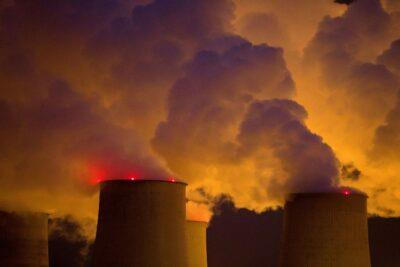
The European Parliament and member states aim to reach a tentative deal on putting a carbon price on imported goods coming from third countries, giving the bloc a powerful tool to shield its industry during an unprecedented green transition while helping deter pollution in other parts of the world.
The two sides are set to thrash out key details of the Carbon Border Adjustment Mechanism later Monday, including a provision on which products are covered. While both want to slap a levy on carbon-intensive imported cement, steel, aluminum fertilizers and electricity production, parliament’s negotiators also want to include plastics and hydrogen.
Another important issue on the table — how to ensure that EU exporters aren’t penalized by higher costs, while phasing out free allowances for CBAM-covered sectors in the bloc’s emissions trading system — is set to be tackled in “jumbo talks” on Dec. 16.
A deal on the carbon measure would be a major victory for one of the EU’s more controversial proposals, when it was announced last year as part of the bloc’s package to cut emissions by 55% by the end of the decade. The proposal tabled by the European Commission in 2021 envisaged that the importer would be entitled to account for the pollutions costs paid in country of origin if it has carbon pricing.
The EU plans have already caused diplomatic unease in China and India and there’s concern that Russia may not comply with it. The EU mechanism also comes amid growing tensions over the US government’s Inflation Reduction Act, the country’s $369 billion green package, which provides subsidies only to American manufacturers to develop some clean technologies, including electric vehicles. The EU sees that as a possible contravention of WTO rules.
For its part, the EU argues that the CBAM is in line with international trade rules as an environmental measure, designed to stop industry from moving carbon emissions outside of the bloc as it imposes stricter climate measures on industry. A potential preliminary deal among negotiators on Monday would need the endorsement of ministers from national governments and the full EU Parliament to enter into force. That may be done only after policy makers iron out the details of a link with a broader carbon market reform.
The talks kick off a bumper week for EU climate and energy policy. The bloc is also looking to finalize the overhaul of its emissions trading system at talks starting Dec. 16, which are likely to go into the weekend. Before then, energy ministers meet to discuss a gas price cap — an issue that could run into the EU summit, which is also this week.
Recommended for you
